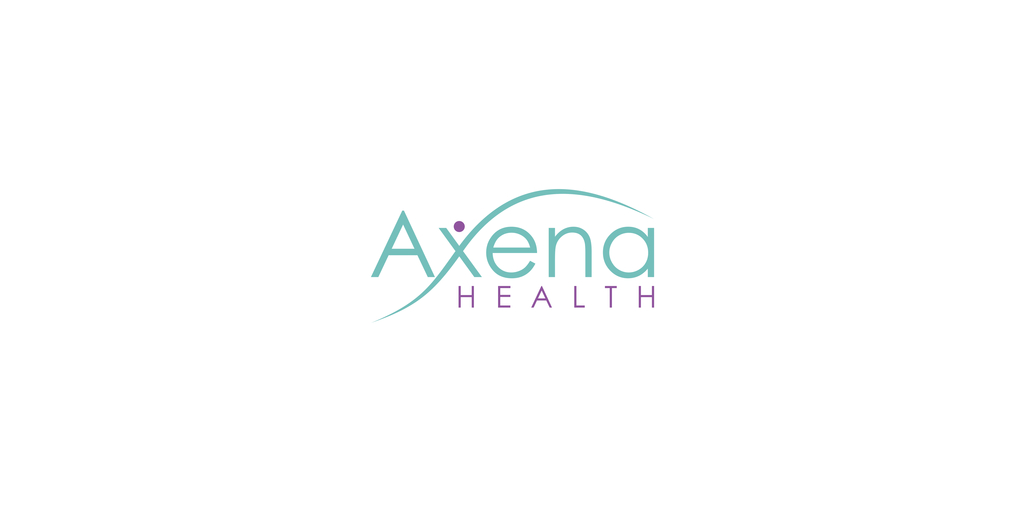Study of clinic-based incontinence treatment now enrolling patients in Abuja and Ikeja, Nigeria; ArcHealth Foundation awards grant
NEWTON, Mass.--(BUSINESS WIRE)--#DigitalHealth--Axena Health, Inc. (Axena Health), a medical device company focused on female pelvic health, today announced that researchers in Nigeria are enrolling women in a feasibility study examining a novel treatment modality for female incontinence. The study will assess a clinic-based treatment program at two research sites in Nigeria, which leverages Leva® Pelvic Health System technology coupled with a home-based, digital program of health education and instruction on pelvic floor muscle training (PFMT). ArcHealth Foundation, Inc., a 501(c)(3) public charity that supports equitable and affordable access to health technologies globally, issued a grant to support in-country data management by Helium Health, a leader in healthcare digitization across Africa who is accelerating the Continent’s transition to a technology and data driven healthcare sector.
This interventional feasibility trial follows a prior large-scale qualitative examination into the burden of incontinence among women in Kenya and Nigeria. Axena Health initiated that qualitative study in May 2023 to understand these burdens and identify how women in low- and middle-income countries could access treatment within local healthcare delivery systems and in a manner that accommodates cultural norms. Study findings, announced in March 2024, revealed a critical need for awareness, education, and access to evidence-based treatment.
Researchers applied this knowledge when developing this interventional feasibility study: “Feasibility of a Clinic-based Intervention of Biofeedback and Health Education Coupled with a Digital Home Program for Nigerian Women with Pelvic Floor Disorders.” The prospective, single-cohort, open-label study is evaluating women’s acceptance of and success with clinic-based treatment using Leva System technology to guide PFMT, a first-line treatment for incontinence. The program also includes an at-home digital program of health education and PFMT instruction. The study will enroll 60 women at University of Abuja Teaching Hospital and Lagos State University Teaching Hospital.
“Pelvic floor disorders are a major concern in women’s health, but they are especially onerous for our population of women,” said Dr. Babafemi Daniyan, Department of Obstetrics and Gynaecology, University of Abuja Teaching Hospital, Abuja, Nigeria. “There is significant need for education, awareness-building and effective care for the millions who experience severe psychosocial, emotional and financial hardships that often come with untreated incontinence. We are pleased to offer study participants a treatment option and look forward to sharing the results with the hope that more women can access relief.”
An estimated one-third of women worldwide experience one or more pelvic floor disorders, which include urinary incontinence (UI), fecal incontinence (FI) and pelvic organ prolapse (POP). Lack of awareness contributes to low care-seeking behaviors, leaving many women living with untreated incontinence. Often a progressive disorder, incontinence can worsen over time, placing women at risk for significant negative psychosocial, economic, and physical burdens. Stigma can exacerbate these impacts in some low- and middle-income countries.
ArcHealth Foundation Board President Natalie Meyer added, “We are delighted to provide grant support for such an important market-shaping study with strong local partners like Helium Health. Female incontinence is a global health issue that can impact a woman’s ability to participate fully in work and family life, which can have dire consequences for her social, emotional and financial well-being. In the U.S., the Leva System has amassed significant clinical and real-world data showing women can achieve durable, long-term relief of urinary incontinence symptoms. The opportunity to adapt and deliver this caliber of treatment to women globally is what ArcHealth’s mission is all about.”
“Our initial study revealed the significant negative impacts of incontinence on the lives of women in low- and middle-income countries,” said Dr. Laura E. Keyser, PT, DPT, MPH, the study’s lead researcher and Axena Health’s Director of Clinical Strategy and Global Health. “This knowledge will inform a new Leva-based treatment program that will allow clinicians to effectively counsel women and provide discrete evidence-based, first-line care under their guidance. We hope the results of this new study will help to expand access to effective incontinence treatment. We are grateful to ArcHealth Foundation for its generous support and to our accomplished co-investigators who share our vision of providing treatment for women regardless of their geography or socioeconomic status.”
Randy Pritchard, CEO of Axena Health, added, “We are thrilled to partner with University of Abuja Teaching Hospital and Lagos State University Teaching Hospital on this important new study. The results will provide critical insights that will inform Axena Health’s strategy as we plan to expand beyond the U.S. market and provide life-altering treatment options for women around the world who experience urinary incontinence and other pelvic floor disorders. Unfortunately, these are global problems so we’re committed to providing the global solutions that women deserve.”
For more information about the study, please visit Axena Health Global Health. The study findings from the completed qualitative study are available online. For additional information or to discuss potential partnerships, please contact jmckinney@axenahealth.com.
About the Leva® Pelvic Health System
The Leva® Pelvic Health System offers an innovative, non-invasive, medication-free way for women to train and strengthen their pelvic floor muscles—at home in just five minutes a day—to treat urinary incontinence (UI) and chronic fecal incontinence (FI). Combining a small FDA-cleared vaginal motion sensor with integrated software, the Leva System offers precise visualization of pelvic movement in real-time, enables progress tracking and allows active physician involvement, all of which support women’s success. Recognizing that level-one evidence shows pelvic floor muscle training is most effective when performed under the supervision of a skilled healthcare provider, the Leva System is available by prescription only, allowing physicians the opportunity to treat UI and chronic FI on a broad scale and with continued involvement in patient success. The Leva System has multiple clinical trials and published data from globally recognized medical centers supporting its efficacy in treating UI, including two studies in Obstetrics and Gynecology (The Green Journal), the official publication of the American College of Obstetricians and Gynecologists (ACOG).
About Axena Health
Axena Health, Inc. is dedicated to improving the lives of women with pelvic floor disorders. Axena Health’s flagship product, the Leva® Pelvic Health System, offers a novel, effective, first-line treatment for urinary incontinence (UI) and chronic fecal incontinence (FI), underreported conditions affecting over 78 million and 12 million women in the U.S. alone. Axena Health’s technology enables non-invasive, drug-free treatment via precise visualization of movement in real time during pelvic floor muscle training, while monitoring usage and progress. For more information, please visit www.axenahealth.com or www.levatherapy.com and follow Axena Health on LinkedIn.
Important Indication and Other Information for the Leva® Pelvic Health System
The Leva® Pelvic Health System is intended for (1) strengthening of pelvic floor muscles, (2) rehabilitation and training of weak pelvic floor muscles for the treatment of stress, mixed, and mild to moderate urgency urinary incontinence (including overactive bladder) in women and (3) rehabilitation and training of weak pelvic floor muscles for the first-line treatment of chronic fecal incontinence (>3-month uncontrolled passage of feces) in women. Treatment with the Leva System is by prescription and is not for everyone. Please talk to your prescriber to see if Leva System is right for you. Your prescriber should discuss all potential benefits and risks with you. Do not use Leva System while pregnant, or if you think you may be pregnant, unless authorized by your doctor. For a complete summary of the risks and instructions for the Leva System, see its Instructions for Use available at www.levatherapy.com.
About ArcHealth Foundation
ArcHealth Foundation, Inc., is a 501(c)(3) public charity whose mission is to bridge the gap between medical innovation and global healthcare to ensure life-changing medical devices are affordable and accessible to women, worldwide. For more information, please visit www.arc-health.org and follow ArcHealth Foundation on LinkedIn.
Contacts
Media:
Shanti Skiffington
617-921-0808






